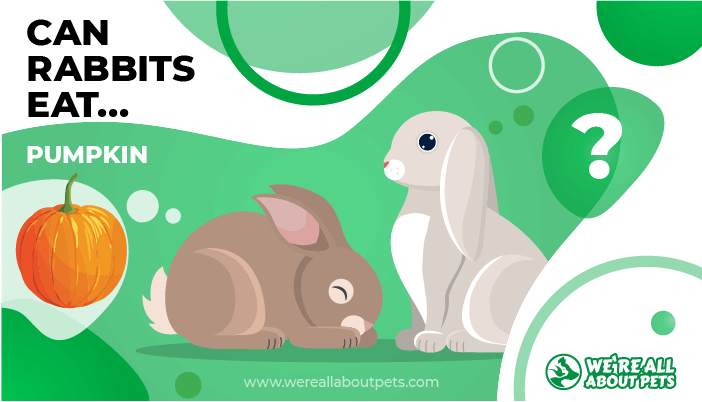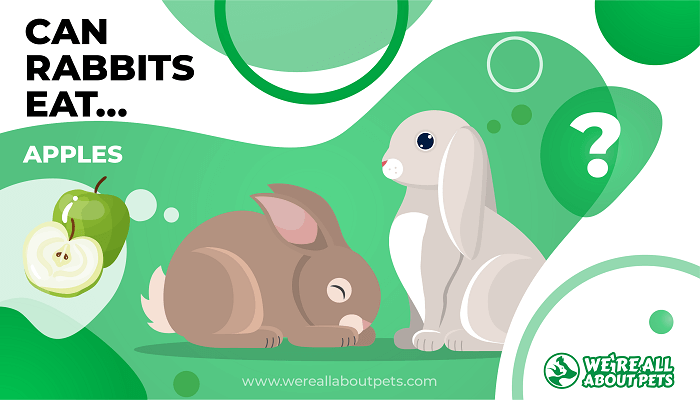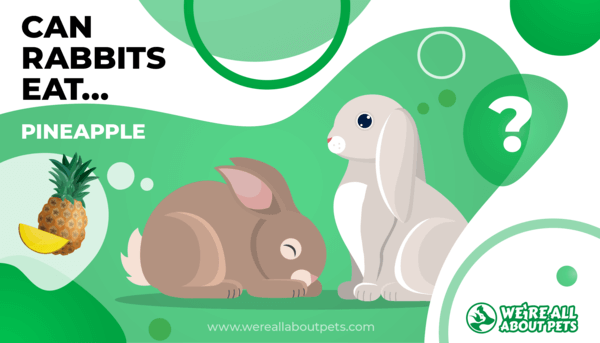Can Rabbits Eat Bell Peppers?
This page contains affiliate links. We may earn money or products from the companies mentioned in this post through our independently chosen links, which earn us a commission. Learn More
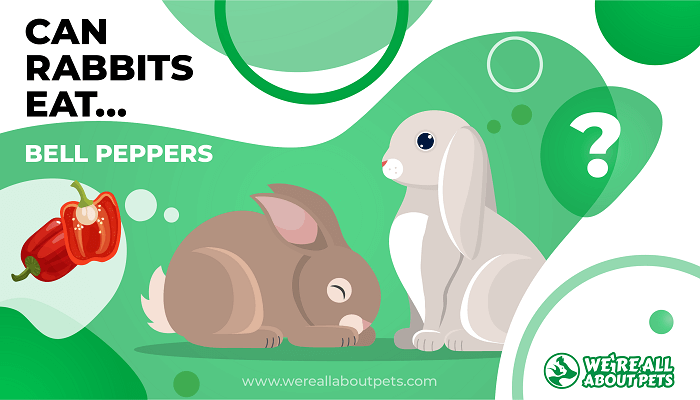
If you love bell peppers, you’re not alone: These colorful, slightly sweet veggies make their way into recipes from many cultures – and they’re fantastic for snacking, too!
Whether you’ve picked up a few sweet peppers from the market or if you’re growing a bumper crop of your own peppers, you’re probably wondering whether it’s alright to share them with your pet.
The short (and slightly sweet!) answer is “Yes, bell peppers are OK for rabbits.”
But there are lots of other things you’ll need to know before you actually hop over to your bunny’s hutch and hand over this crisp, all-natural treat. Stick with us and in a few minutes, you’ll be well-informed on the topic of bell peppers for rabbits.
Bell Pepper Nutrition Stats
Despite their sweet nature, bell peppers are pretty low in calories. It’s just one reason why they’re so popular!
Keep in mind that riper, sweeter peppers will have more calories than green ones. But on average, one medium-sized bell pepper gives you:
- 37 calories
- 7 g carbohydrates
- 2 g fiber
- 1 g protein
Bell Pepper Nutritional Facts
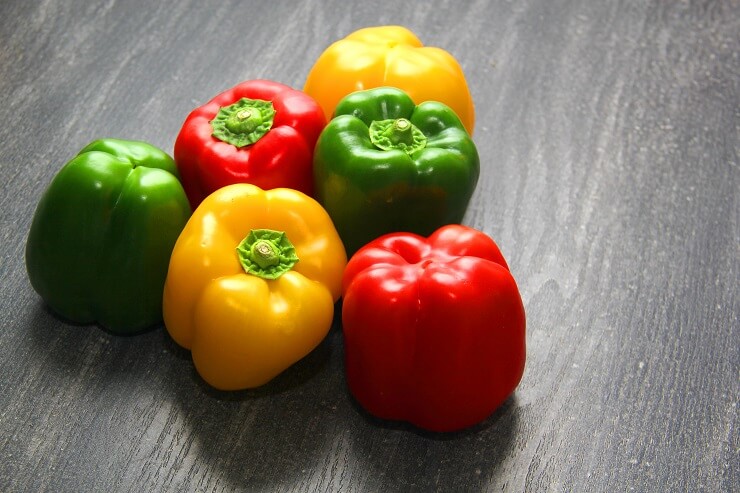
Bell peppers aren’t just tasty: They’re also great for you, with vitamins A and C taking on starring roles, plus loads of other nutrients waiting in the wings.
That same medium-sized bell pepper offers approximately:
- 152 mg vitamin C
- 3726 iu vitamin A
- 5 mg sodium
- 3 mg vitamin B6
- 8 mcg vitamin K
- 2 mg nicacin
- 7 mcg folate
- 1 mg thiamine
Can Rabbits Have Bell Pepper?
Yes! Rabbits can have bell pepper as a treat. Sweet veggies like bell pepper should only make up a small portion of your rabbit’s diet, but when it’s time for a yummy snack that also happens to be on the healthy side, bell pepper is tough to beat.
Is Bell Pepper Good For Rabbits?
Yes! Even though your rabbit’s food should provide all the nutrients they need, it’s nice to offer some variety and provide your bunny with some extra nutrition. Snacks make life more interesting, too!
How Much Bell Pepper Can A Rabbit Eat?
Bunnies that like bell peppers will leap for joy, because this is one veggie they can have quite a bit of! Here’s how much bell pepper to feed your rabbit:
| Age | Amount |
| Baby rabbits | None |
| Juvenile rabbits | None |
| Adult rabbits | 1 tablespoon per 2 pounds of body weight |
You can give rabbits bell pepper as a natural treat on its own, or you can mix it with other veggies so long as you keep the total amount of crunchy veg within the recommended guideline of 1 tablespoon veggies per 2 pounds of bunny body weight.
When you take all the extras that your bunny eats into consideration, they should total no more than 10 to 15 percent of your rabbit’s overall dietary intake.
Even though bell pepper is good for your bunny rabbit, it needs to be introduced gradually. Offer your bunny about ¼ of the recommended portion for their size and gradually increase the amount on days that you offer bell pepper.
Here’s another important tip for feeding bell pepper to your rabbit for the first time: Don’t introduce this veggie at the same time as another food. Every new food needs to be introduced on its own, so your bunny’s delicate digestive system can adjust gradually.
Every time you give a rabbit a new type of food, it’s extra-important to monitor for diarrhea and watch for signs that your bunny has gas. If your rabbit is acting at all abnormal, or if they seem lethargic, stop giving treats and get in touch with your vet.
How Often Can A Rabbit Eat Bell Pepper?
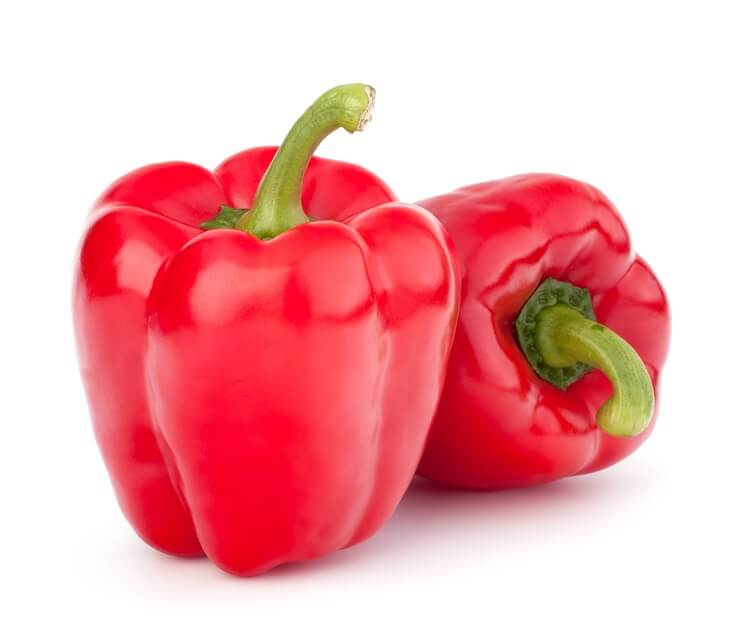
Your rabbit can eat a little bit of bell pepper every few days once they’re accustomed to it.
Mix things up once your bunny has had a chance to try different foods. Variety is the spice of life and rotating through different veggies is a good way to treat your rabbit to a wider spectrum of nutrients.
The Correct Diet Is Important
What do rabbits eat, anyway? If you’re brand new to the wonderful world of bunnies, it’s normal to have lots of questions. Even experienced rabbit guardians learn new things now and then!
Wild rabbits while away the hours by nibbling on grasses and herbaceous plants. They’ll eat garden veggies if given the opportunity, and wild berries are a welcome treat when they’re available.
Since pet rabbits aren’t normally able to spend their time grazing like their wild cousins, it’s important to offer them a steady supply of fresh hay such as Timothy, oat, or orchard. Hay keeps your rabbit’s digestive system moving and prevents a dangerous condition called GI stasis, so it’s an essential part of their diet.
Here’s what else to feed your rabbit each day:
- A portion of rabbit food: Balanced rabbit food contains the nutrients your bunny needs for good health. The package label is your guide to the right serving size.
- About one cup of leafy greens per 2 pounds of body weight.
- About one tablespoon of crunchy veggies per 2 pounds of body weight.
Occasional sweet treats like apple, pears, or berries can be offered, but only in small amounts, and not on a daily basis. Your bunny might beg adorably for more, but don’t give in!
Remember to care for your bunny’s teeth, too. A rabbit’s teeth are always growing, and constant gnawing and nibbling is the only way to prevent overgrowth that could lead to a painful infection. Make sure that your rabbit always has something safe to chew, such as apple wood sticks or compressed hay cubes.
What Are Other Healthy Alternatives To Bell Pepper In A Rabbit’s Diet?
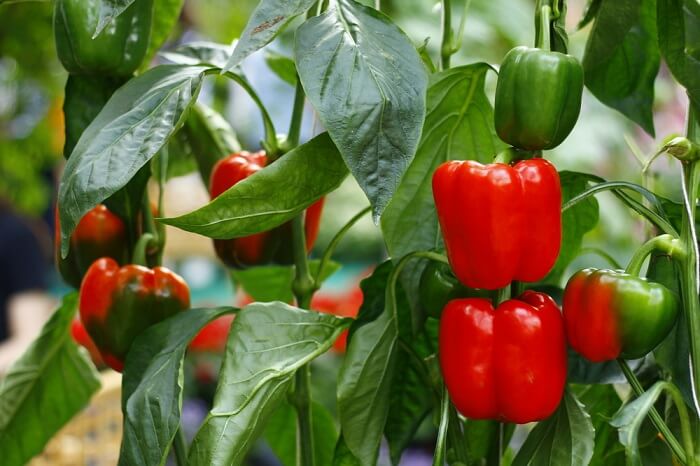
All out of bell pepper, or looking for something different to give your bunny?
There are lots of options. Try:
- parsley
- cilantro
- basil
- dill
- carrot tops
- mustard greens
- swiss chard
- beet greens
- radish tops
- spinach
- arugula
- romaine lettuce
- butter lettuce
- cabbage
- broccoli
- dandelion greens
- endive
- escarole
- fennel
- bok choy
- yu choy
- kale
Like many animals, rabbits can form kidney stones when too many high-oxalate vegetables are consumed. This compound is found in many of the vegetables rabbits enjoy, so remember to rotate through different greens to prevent buildup.
For now, why not try giving your rabbit bell pepper? Just a little nibble will add a touch of excitement to your bunny’s day while treating them to a few extra vitamins.
Frequently Asked Questions
Is bell pepper safe for rabbits?
Yes, it’s safe to give bell pepper to a rabbit! Do remember to wash the pepper well, and remove the seeds as they can become lodged in your bunny’s throat.
Can bell pepper make my rabbit sick?
Yes, but this isn’t likely to happen unless you feed far too much in one serving. So long as you stick to the recommended amount of bell pepper, your rabbit should benefit from this healthy treat.
Can rabbits eat hot peppers?
It’s true that hot peppers such as jalapenos and serranos are part of the plant family bell peppers belong to, but they contain compounds that can burn your rabbit’s sensitive mouth and create severe gastric distress. Never offer hot peppers to a rabbit – these are likely to be refused, anyway.






